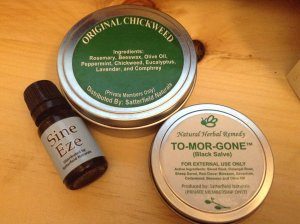 This is a terrible story of FDA over reach. Sam Girod, a simple Amish farmer was making a wholesome natural salve and got cross with the FDA on labeling. The FDA ended up charging him with felony drug distribution and interstate drug distribution. This is entirely crazy.
This is a terrible story of FDA over reach. Sam Girod, a simple Amish farmer was making a wholesome natural salve and got cross with the FDA on labeling. The FDA ended up charging him with felony drug distribution and interstate drug distribution. This is entirely crazy.
I am not going to write a lot about this because I think that the Family Cow Blog pretty much covered the story. Here is a link to that article:
http://www.icontact-archive.com/NGPZGNZ0MsM61WcVJ3rpFviZsxzbA9ul
Other links for more research
http://www.davidgumpert.com/2783-2
http://www.wkyt.com/content/news/WKYT-Investigation-Amish-farmer-in-jail…
http://www.kyfreepress.com/2017/01/fda-girod-indictment/
Please go sign the whitehouse petition to pardon this man.
https://petitions.whitehouse.gov/petition/free-ky-amish-farmer-samuel-girod

 The Left is notorious for their friendly-sounding nomenclature of bills. The American Recovery and Reinvestment Act was the phony stimulus bill; the Patient Protection and Affordable Care Act is Obamacare; Wall Street Reform and Consumer Protection Act is Wall Street regulation. Each of these monstrosities have the same thing in common: they do the exact opposite as they’re advertised. And that’s why S-510, the Food Safety Modernization Act needs to be stopped from turning into law. It goes to the Senate floor for a vote the day after Thanksgiving.
The Left is notorious for their friendly-sounding nomenclature of bills. The American Recovery and Reinvestment Act was the phony stimulus bill; the Patient Protection and Affordable Care Act is Obamacare; Wall Street Reform and Consumer Protection Act is Wall Street regulation. Each of these monstrosities have the same thing in common: they do the exact opposite as they’re advertised. And that’s why S-510, the Food Safety Modernization Act needs to be stopped from turning into law. It goes to the Senate floor for a vote the day after Thanksgiving.


 By Doreen Hannes
By Doreen Hannes